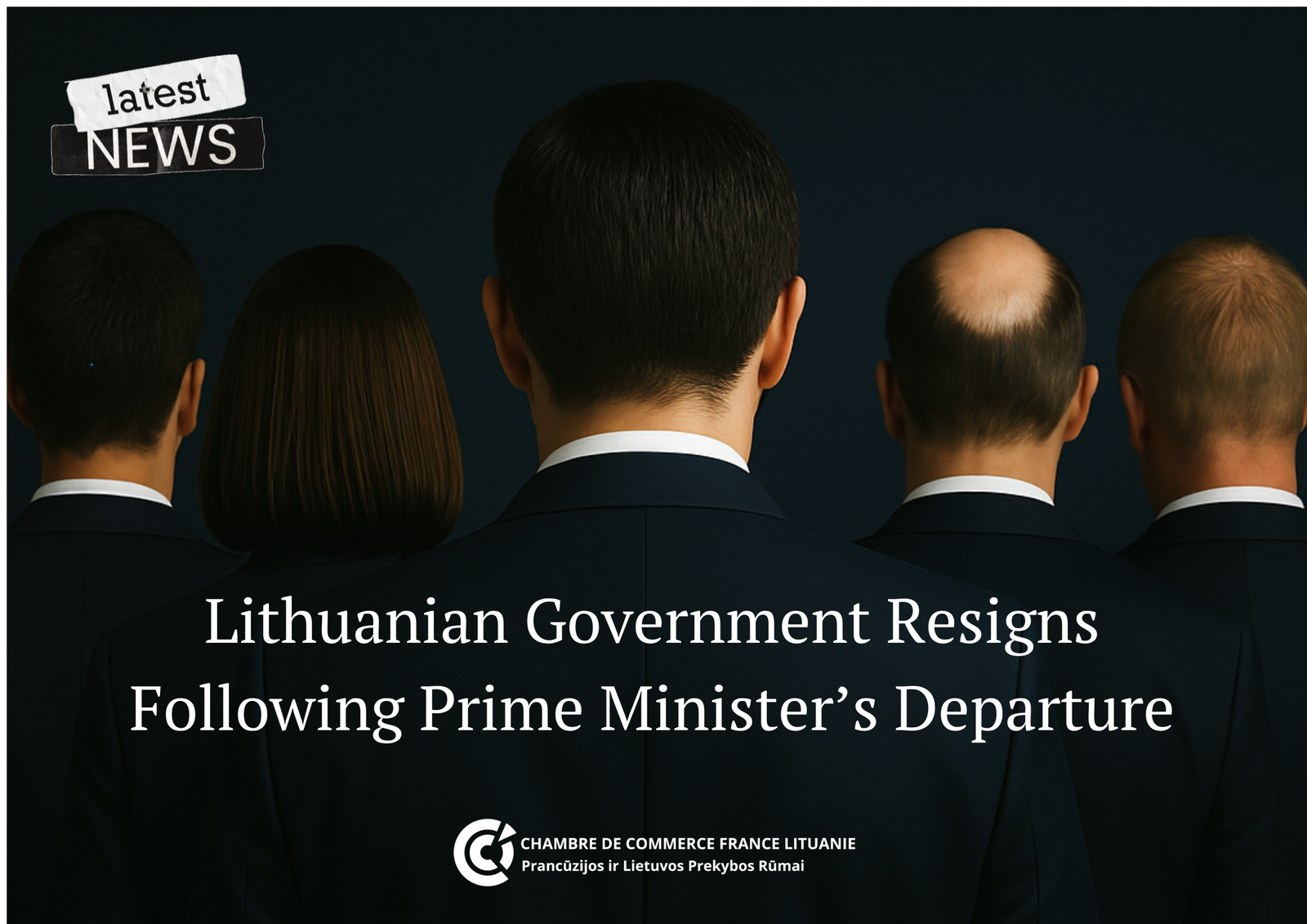Copyright By Chambre de Commerce Franco-Lituanienne - 2024

Lithuania is entering a period of political transition after Prime Minister Gintautas Paluckas submitted his resignation, prompting the automatic dissolution of the entire 19th government. The resignation came amid growing public and political scrutiny over financial transactions involving companies previously linked to the prime minister and his family members.
The situation developed following media reports that highlighted potential conflicts of interest. These matters are now under investigation by appropriate authorities.
Mr. Paluckas has denied any wrongdoing, asserting that the transactions in question complied with all relevant regulations. However, pressure mounted from within the governing coalition. The party “For Lithuania,” a partner in the ruling alliance, stated that it would leave the government unless Mr. Paluckas stepped down. Opposition leaders also began discussing possible impeachment proceedings. In this context, the prime minister announced his resignation, which was officially accepted during an extraordinary cabinet meeting on August 4.
According to Lithuania’s constitutional framework, the resignation of the prime minister results in the automatic resignation of all ministers. Following protocol, the cabinet formally submitted its resignations, bringing the current administration’s term to an end. Government officials described the transition process as orderly.
President Gitanas Nausėda moved quickly to ensure the continuity of governance. He appointed Finance Minister Rimantas Šadžius as acting prime minister. Mr. Šadžius will lead a caretaker government until a new cabinet is approved by the Seimas, Lithuania’s parliament.
The Social Democratic Party, which remains the largest political force in parliament, is expected to propose a new candidate for the position of prime minister. The party will need to secure majority support from coalition partners and gain approval from the president. Parliament is scheduled to reconvene in early September to review and vote on the new cabinet lineup.
The current developments come during a time of regional and international attention on Lithuania, particularly due to its geographic position and ongoing support for Ukraine. President Gitanas Nausėda has emphasized that the country’s foreign policy direction and international commitments will remain consistent during the transitional period.
While the process of forming a new government is underway, the caretaker administration will continue to manage essential state functions. Political analysts have noted that the situation, although significant, reflects the functioning of Lithuania’s constitutional processes and mechanisms for leadership change.
The coming weeks will be focused on coalition negotiations and the selection of a new prime ministerial candidate capable of forming a stable government. Observers are watching closely to see how the Social Democrats and their allies will navigate this transition.
Copyright By Chambre de Commerce Franco-Lituanienne - 2024
Signup for news !
You have successfully joined our subscriber list.